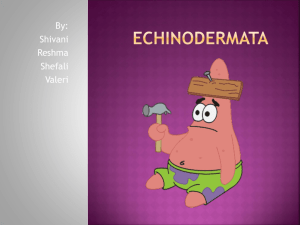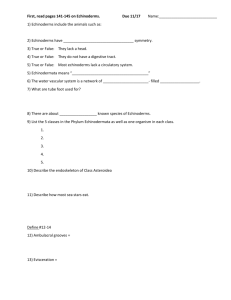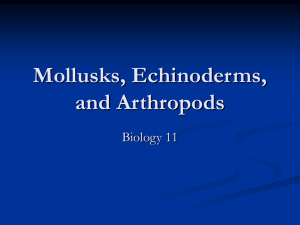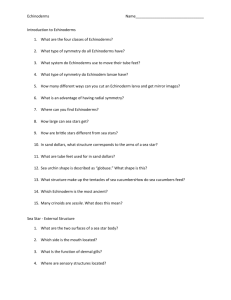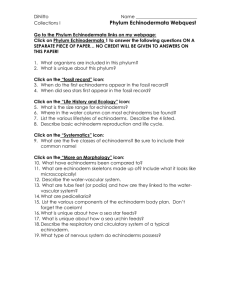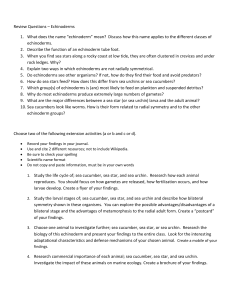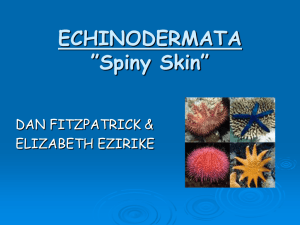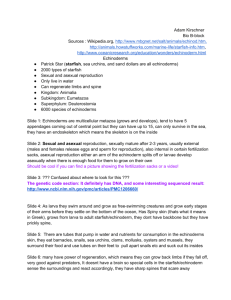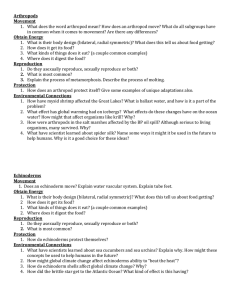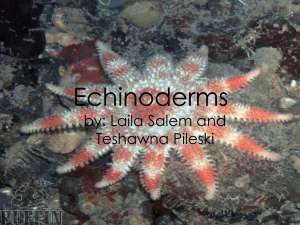Echinodermata
advertisement
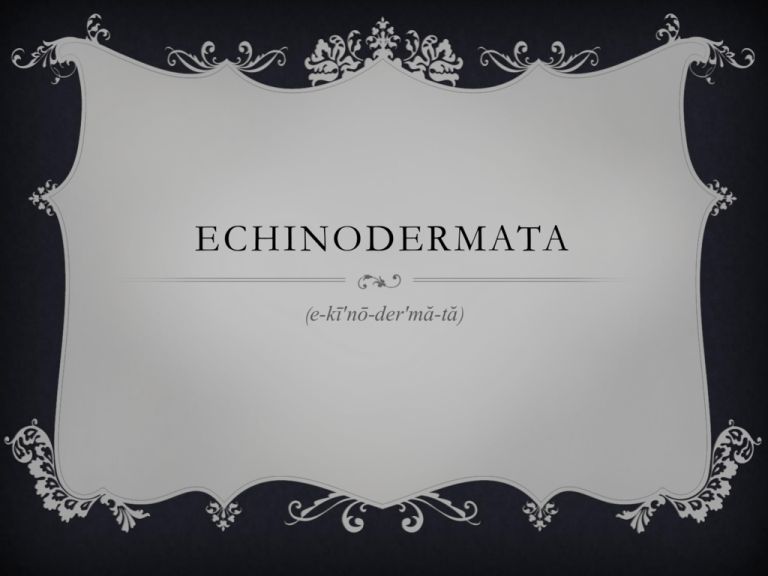
ECHINODERMATA (e-kī′nō-der′mă-tă) GERM LAYERS Echinoderms have three germ layers (triploblastic) Endoderm becomes the digestive tube (archenteron) Mesoderm creates future skeleton, between the endoderm and ectoderm Ectoderm becomes the outer layer COELOM Def: A body cavity (fluid or air filled space separating the digestive tract from the outer body wall) lined by tissue derived only from mesoderm. In deuterostomes, the mesoderm buds from the wall of the archenteron, so the cavity made becomes the coelem SYMMETRY Only adults have radial symmetry; echinoderm larvae are bilaterally lateral and later develop pentaradial symmetry The body is arranged in five parts around a central axis DIGESTIVE TRACT Very simple digestive gut Leads from mouth to stomach to anus CEPHALIZATION Definition: an evolutionary trend toward the concentration of sensory equipment the anterior and of the body. Echinoderm have no sensory head region. Have a diffuse network of nerves and neurons that make a ring around the mouth SEGMENTATION Echinoderms have no segmentation SKELETON AND APPENDAGES Echin- spiny, derma-skin Thin epidermis covers a hard, flexible endoskeleton made of calcareous plates No appendages; organs found in all spokes of the body CIRCULATORY SYSTEM Echinoderms have no well defined circulatory system Open circulatory system- fluid bathes organs directly with oxygen with no distinction between blood and other fluid RESPIRATORY SYSTEM A very simple system They have gills and tube feet to take in oxygen and take out carbon dioxide. REPRODUCTION Echinoderms are gonochric (separate sexes) Fertilization is external- gametes are released into the water They have free living larva HABITAT Echinoderms are found at every ocean depth from the seashore (intertidal zone) to the very bottom of the ocean (abyssal zone) FUN FACTS Water Vascular System- unique to echinoderms. It is a network of hydraulic canals branching into extensions, called tube feet, that work in locomotion, feeding, and gas exchange.
